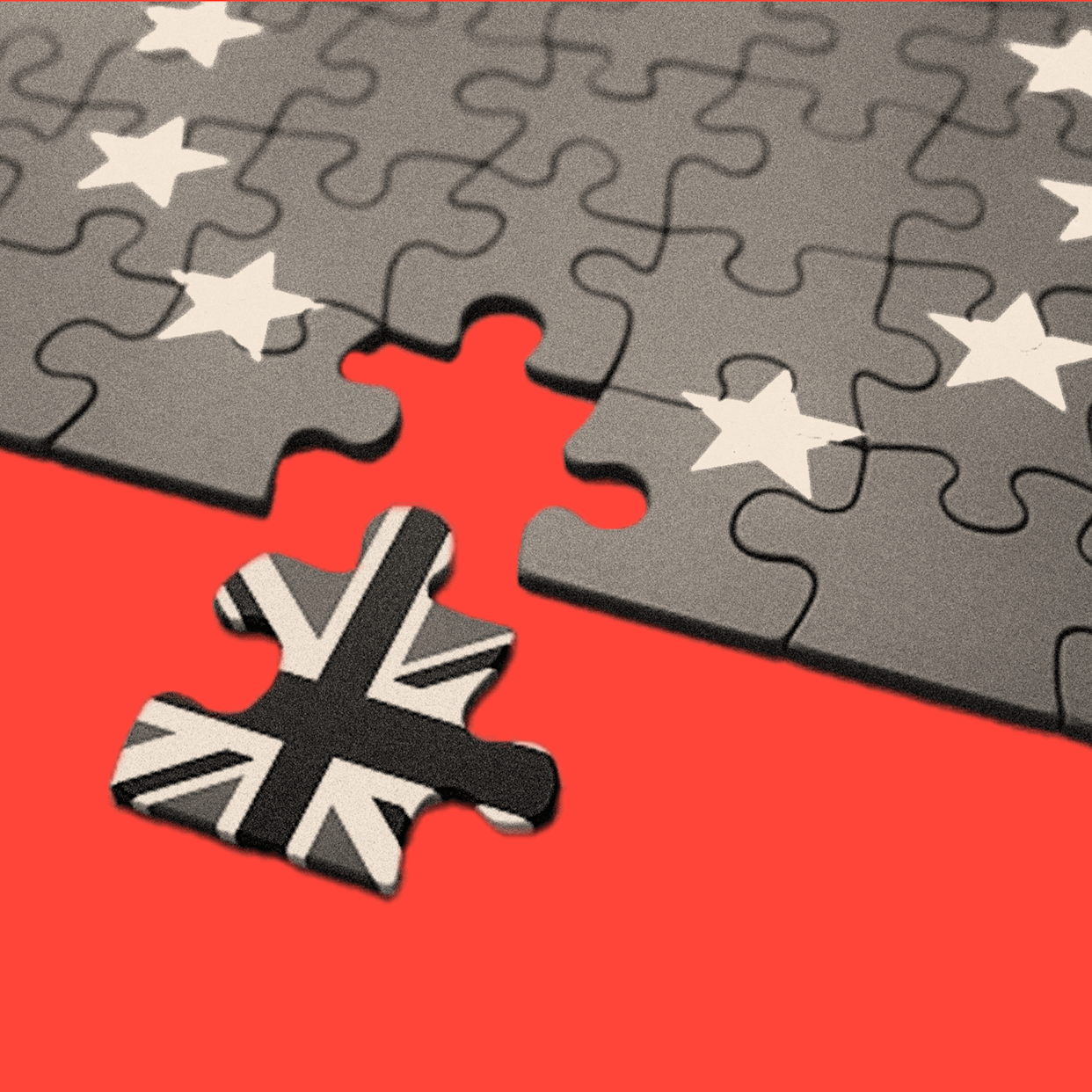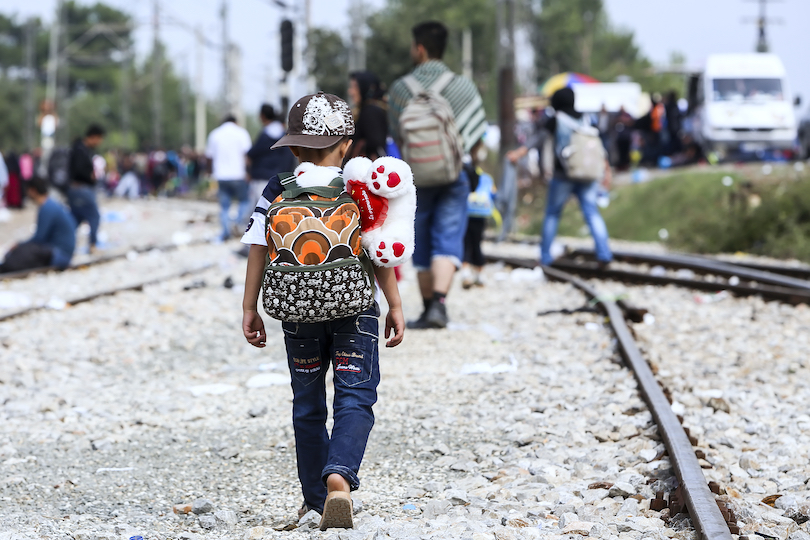On May 19, 2025, the United Kingdom and the European Union will hold their first summit since Brexit, a pivotal moment that has sparked intense debate and polarized opinions across the political spectrum. Hosted by Prime Minister Sir Keir Starmer, this summit marks a potential turning point in UK-EU relations, with discussions centered on a new security pact, trade enhancements, and youth mobility schemes. But what does this summit signify? Is it a pragmatic step toward cooperation, a betrayal of Brexit's promises, or a missed opportunity for deeper integration? This article explores the complexities of the summit, delving into historical contexts, hidden truths, political dynamics, economic implications, and societal impacts, while drawing on research and expert insights to provide a comprehensive analysis.
The Historical Context: A Tangled UK-EU Relationship
From Entwined Histories to Brexit
The relationship between the UK and the EU has always been intricate, shaped by centuries of cultural, political, and economic ties. Lancaster House, the setting for preliminary talks leading to the summit, exemplifies this entanglement. Its grand staircase, inspired by the Palace of Versailles, and its history of hosting figures from Queen Victoria to Vladimir Putin, reflect the UK's deep connections with Europe. Yet, the 2016 Brexit referendum marked a seismic shift, with 51.9% of voters opting to leave the EU, driven by desires for sovereignty, control over borders, and divergence from EU regulations.
Brexit negotiations, particularly under Prime Minister Boris Johnson in 2020, prioritized divergence over cooperation. The absence of a security and defense partnership in the final Brexit deal was a notable omission, leaving gaps in collaboration on critical issues like Ukraine and energy security. Research from the Centre for European Reform (CER) highlights that this divergence reduced UK-EU trade by 16% in goods and 20% in services by 2022, underscoring the economic cost of separation.
"Brexit was sold as a reclaiming of sovereignty, but it came at the expense of economic integration and strategic alignment with our closest neighbors." – Dr. Sophie Lauwers, CER
The Labour Government's Vision
The Labour government, elected in July 2024, campaigned on a manifesto promising an "improved and ambitious relationship" with the EU. Sir Keir Starmer, a former Remain supporter, has emphasized "serious pragmatism" over ideological battles. The summit represents the culmination of enhanced contacts since the election, as noted by EU Ambassador Pedro Serrano. However, Labour's approach is cautious, with red lines against rejoining the Customs Union, Single Market, or reinstating freedom of movement. This balancing act reflects the political tightrope Starmer must walk, appeasing pro-EU voters while avoiding accusations of betraying Brexit.
The Summit's Agenda: Key Areas of Focus
A New Security and Defense Partnership
At the heart of the summit is a proposed UK-EU security pact, negotiated for months and championed by EU foreign policy chief Kaja Kallas. The pact aims to complement NATO by addressing broader security concerns, including economic stability, infrastructure protection, energy supplies, migration, and transnational crime. Kallas emphasized the need to move past previous tensions, stating:
"Considering what is going on in the world, we need to move forward with this partnership."
The pact could unlock economic opportunities, particularly for the UK's defense industry. Kevin Craven, CEO of ADS Group, estimates that British firms could boost EU defense output by 20% through access to the EU's €150 billion SAFE (Security Action For Europe) program. However, critics like Conservative MP Alex Burghart argue that NATO is sufficient, warning against entanglement with EU bureaucracy. Reform UK's Richard Tice goes further, labeling the pact a constraint on UK autonomy.
Research from the European Council on Foreign Relations (ECFR) suggests that a security pact could enhance interoperability between UK and EU forces, particularly in response to Russia's invasion of Ukraine. Since 2022, the UK has collaborated with the EU through NATO and the Coalition of the Willing, but a formal pact could institutionalize this cooperation, ensuring long-term alignment.
Trade and Veterinary Agreements
Another focal point is a proposed veterinary deal to reduce border checks on food and drink, addressing post-Brexit trade frictions. Nick Thomas-Symonds, the Cabinet Office minister, highlighted Labour's manifesto commitment to lower food costs, citing the deal as a mandate-driven priority. For businesses like Creative Nature, which struggles with EU export paperwork, such a deal could open new markets. Julianne Ponan, the firm's CEO, recounted an employee carrying samples on a passenger flight to avoid border delays, illustrating the practical challenges.
In Northern Ireland, the deal could simplify trade across the Irish Sea, where post-Brexit checks have frustrated businesses and Unionist politicians. However, the deal requires the UK to align with EU food safety rules and accept oversight by EU courts, sparking accusations of a "surrender summit" from Conservative Shadow Minister Andrew Griffith. Reform UK's Tice warns of a "Great British sellout," arguing that the EU's economic model is failing.
Analysis from the UK in a Changing Europe think tank suggests that while the veterinary deal may not be "economically earth-shattering," it could serve as a "proof of concept" for further cooperation. However, David Henig, a former trade negotiator, cautions that its economic impact is limited, as food and drink constitute only 12% of UK-EU trade. Aligning rules on industrial products, he argues, would yield greater benefits.
Fishing Rights: A Totemic Issue
Fishing remains a contentious issue, with current arrangements allowing EU boats significant access to UK waters set to expire in 2026. The EU seeks an extension, while British fishermen, disappointed by Boris Johnson's concessions, demand tougher terms. Former Brexit minister David Davis advises the government to "tough it out," using fishing as leverage for concessions elsewhere. However, the EU holds strong cards, as 60% of UK-caught fish are exported to the Continent.
The fishing dispute exemplifies the broader challenge of balancing sovereignty with economic interdependence. Research from the University of Aberdeen indicates that Brexit reduced UK fishing exports by 15% due to increased bureaucracy, highlighting the stakes of the negotiations. EU coastal states like France and Denmark are prepared to link fishing rights to other issues, such as the security pact, complicating the summit's dynamics.
Youth Mobility: Bridging the Divide
A youth mobility scheme, allowing under-30s from the UK and EU to live and work in each other's territories, has gained traction. Initially dismissed by Labour, the idea was endorsed by Thomas-Symonds as a "smart, controlled" initiative. The scheme would involve limited visas and capped numbers to avoid inflating migration figures, aligning with existing UK programs with countries like Australia and Japan.
Calum Miller, the Liberal Democrats' Foreign Affairs spokesperson, questions the UK's reluctance to extend such a scheme to its "nearest neighbors." Professor Paula Surridge of Bristol University notes that public concern focuses on "illegal migration" rather than student or worker mobility, suggesting political risks are overstated. However, Conservative pollster Lord Hayward warns of a "bear trap," fearing the scheme could be portrayed as "EU membership 2.0."
A 2024 YouGov poll found 62% of UK voters support youth mobility schemes, particularly among younger demographics, indicating potential public backing. Yet, the EU seeks a more ambitious deal, which could test Labour's cautious approach.
Political Dynamics: A Polarized Debate
Opposition Voices
The summit has ignited fierce opposition from Brexit supporters. Conservatives, led by Andrew Griffith, argue that aligning with EU rules undermines the "freedom to set our own laws." Reform UK's Tice threatens to reverse any deals if his party gains power, dismissing the EU as a "failing economic model." These critiques tap into lingering Brexit sentiments, with a 2025 Opinium poll showing 45% of voters still believe Brexit was the right decision, though 38% now favor closer EU ties.
The rhetoric of a "surrender summit" and "sellout" reflects deeper fears of eroding sovereignty. Yet, Labour's Thomas-Symonds counters that these arguments rehash past debates, emphasizing practical benefits over ideological purity.
Pro-EU Perspectives
On the other end, Liberal Democrats and pro-EU advocates criticize Starmer's caution. Calum Miller laments missed opportunities to rejoin the Customs Union, which could eliminate trade barriers but preclude independent UK trade deals. Jill Rutter of UK in a Changing Europe argues that while incremental steps like the veterinary deal are valuable, they fall short of transformative change. The European Movement UK, a pro-EU campaign group, advocates for rejoining the Single Market, citing a 7% GDP loss from Brexit by 2030, per the National Institute of Economic and Social Research.
"The summit is a step forward, not a step change. It's a slight deepening of ties, not a dramatic shift." – David Henig, former trade negotiator
Economic and Strategic Implications
Economic Opportunities and Risks
The summit's outcomes could reshape the UK's economic landscape. The security pact's access to EU defense funding could bolster firms like BAE Systems, which employs 40,000 UK workers. The veterinary deal could reduce costs for food exporters, who faced a 22% drop in EU sales post-Brexit, according to the Food and Drink Federation. However, aligning with EU rules risks limiting UK regulatory flexibility, a key Brexit promise.
Strategically, the pact strengthens the UK's role in European security, particularly amid heightened tensions with Russia. A 2025 RAND Europe study underscores the importance of UK-EU collaboration in countering hybrid threats, such as cyberattacks and disinformation campaigns. Yet, over-reliance on EU structures could strain relations with non-EU allies like the US, a concern raised by NATO skeptics.
Societal Impacts
Beyond economics, the summit could influence societal cohesion. Youth mobility schemes could foster cultural exchange, countering the 30% drop in UK students participating in Erasmus programs post-Brexit, per the British Council. However, any perception of "free movement" risks alienating Brexit voters, particularly in Red Wall constituencies that swung to Labour in 2024. Surridge's research suggests that while Labour's voter base leans Remain, swing voters remain sensitive to migration narratives.
Hidden Truths and Challenges
Negotiating Power Dynamics
Behind the summit's public narrative lies a complex power dynamic. The EU, representing 27 member states, holds greater leverage, as seen in its ability to link fishing rights to security cooperation. The UK's fragmented political landscape, with vocal opposition from Conservatives and Reform UK, weakens its bargaining position. A 2024 European Policy Centre report warns that the UK's post-Brexit influence in Europe has waned, with EU leaders prioritizing internal cohesion over accommodating London.
Moreover, the summit's success hinges on trust, which remains fragile. The Brexit process, marked by distrust over issues like the Northern Ireland Protocol, left scars. Kallas's call to "move forward" acknowledges this, but EU negotiators are wary of UK backtracking, while British Euroskeptics fear creeping reintegration.
The Role of Public Opinion
Public opinion will shape the summit's legacy. While polls show growing support for closer EU ties, particularly among younger voters, Euroskepticism remains potent. A 2025 IPSOS survey found 55% of UK voters want pragmatic cooperation with the EU, but only 25% support rejoining. Labour must navigate this divide, balancing economic gains with political optics. The risk of being seen as "EU membership 2.0," as Hayward warns, could fuel populist backlash.
The Broader European Context
Global Instability and European Unity
The summit occurs against a backdrop of global instability, from Ukraine's ongoing conflict to energy crises and migration challenges. The EU's SAFE program and NATO's increased defense spending reflect a continent bracing for uncertainty. The UK's participation in these frameworks could enhance its geopolitical relevance, but divergence advocates argue it risks diluting national priorities.
Comparative analysis with other non-EU states, like Norway and Switzerland, offers insights. Norway's participation in the Single Market provides economic stability but requires accepting EU rules without voting rights. The UK, wary of such compromises, seeks a bespoke partnership, but the EU's reluctance to grant exceptions complicates this goal.
The Future of UK-EU Relations
The May 19 summit is unlikely to resolve all tensions, but it could set a precedent for incremental cooperation. Success in areas like security and trade could pave the way for deeper ties, while failure risks entrenching division. The European Policy Institute projects that a "shallow partnership" scenario, with limited agreements, is most likely by 2030, yielding modest economic gains but preserving UK autonomy.
Ultimately, the summit's significance lies in its symbolism: a chance to redefine UK-EU relations in a post-Brexit world. As Lancaster House's historical echoes remind us, the UK's fate remains intertwined with Europe's, whether through cooperation or contention.



















0 Comments